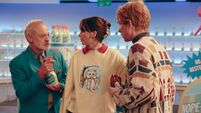Jackson 'pleaded for sedative injections'
An insomnia-racked Michael Jackson pleaded with a nurse to give him a powerful sedative days before his death despite warnings it could be harmful, she said today.
Cherilyn Lee, a private treatment specialist, said she repeatedly rejected his demands for the drug, Diprivan, which is given intravenously.











